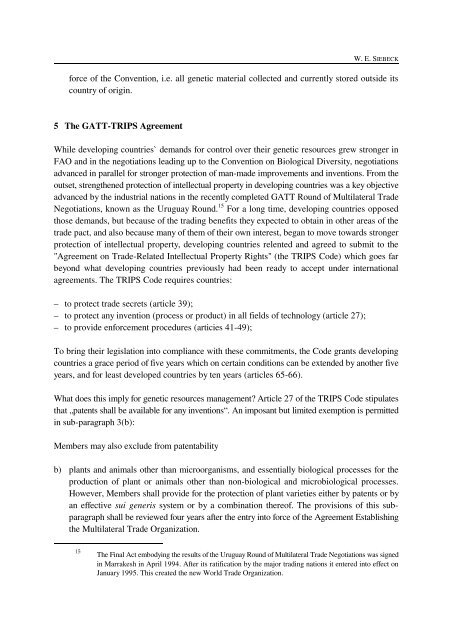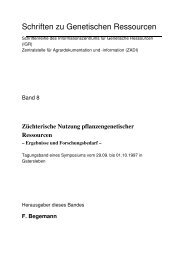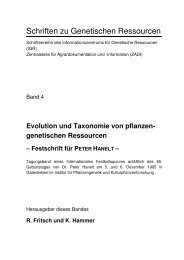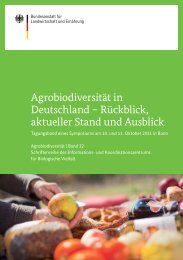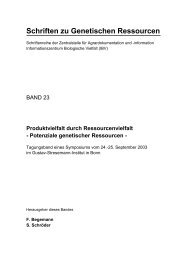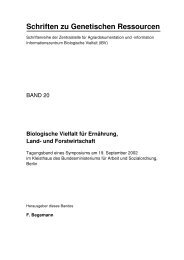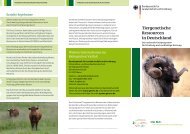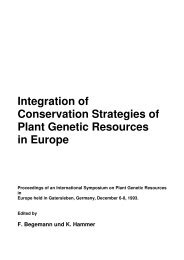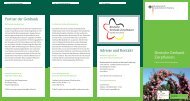Zugang zu Pflanzengenetischen Ressourcen für die ... - Genres
Zugang zu Pflanzengenetischen Ressourcen für die ... - Genres
Zugang zu Pflanzengenetischen Ressourcen für die ... - Genres
Erfolgreiche ePaper selbst erstellen
Machen Sie aus Ihren PDF Publikationen ein blätterbares Flipbook mit unserer einzigartigen Google optimierten e-Paper Software.
W. E. SIEBECK<br />
force of the Convention, i.e. all genetic material collected and currently stored outside its<br />
country of origin.<br />
5 The GATT-TRIPS Agreement<br />
While developing countries` demands for control over their genetic resources grew stronger in<br />
FAO and in the negotiations leading up to the Convention on Biological Diversity, negotiations<br />
advanced in parallel for stronger protection of man-made improvements and inventions. From the<br />
outset, strengthened protection of intellectual property in developing countries was a key objective<br />
advanced by the industrial nations in the recently completed GATT Round of Multilateral Trade<br />
Negotiations, known as the Uruguay Round. 15 For a long time, developing countries opposed<br />
those demands, but because of the trading benefits they expected to obtain in other areas of the<br />
trade pact, and also because many of them of their own interest, began to move towards stronger<br />
protection of intellectual property, developing countries relented and agreed to submit to the<br />
"Agreement on Trade-Related Intellectual Property Rights" (the TRIPS Code) which goes far<br />
beyond what developing countries previously had been ready to accept under international<br />
agreements. The TRIPS Code requires countries:<br />
– to protect trade secrets (article 39);<br />
– to protect any invention (process or product) in all fields of technology (article 27);<br />
– to provide enforcement procedures (articies 41-49);<br />
To bring their legislation into compliance with these commitments, the Code grants developing<br />
countries a grace period of five years which on certain conditions can be extended by another five<br />
years, and for least developed countries by ten years (articles 65-66).<br />
What does this imply for genetic resources management? Article 27 of the TRIPS Code stipulates<br />
that „patents shall be available for any inventions“. An imposant but limited exemption is permitted<br />
in sub-paragraph 3(b):<br />
Members may also exclude from patentability<br />
b) plants and animals other than microorganisms, and essentially biological processes for the<br />
production of plant or animals other than non-biological and microbiological processes.<br />
However, Members shall provide for the protection of plant varieties either by patents or by<br />
an effective sui generis system or by a combination thereof. The provisions of this subparagraph<br />
shall be reviewed four years after the entry into force of the Agreement Establishing<br />
the Multilateral Trade Organization.<br />
15<br />
The Final Act embodying the results of the Uruguay Round of Multilateral Trade Negotiations was signed<br />
in Marrakesh in April 1994. After its ratification by the major trading nations it entered into effect on<br />
January 1995. This created the new World Trade Organization.


